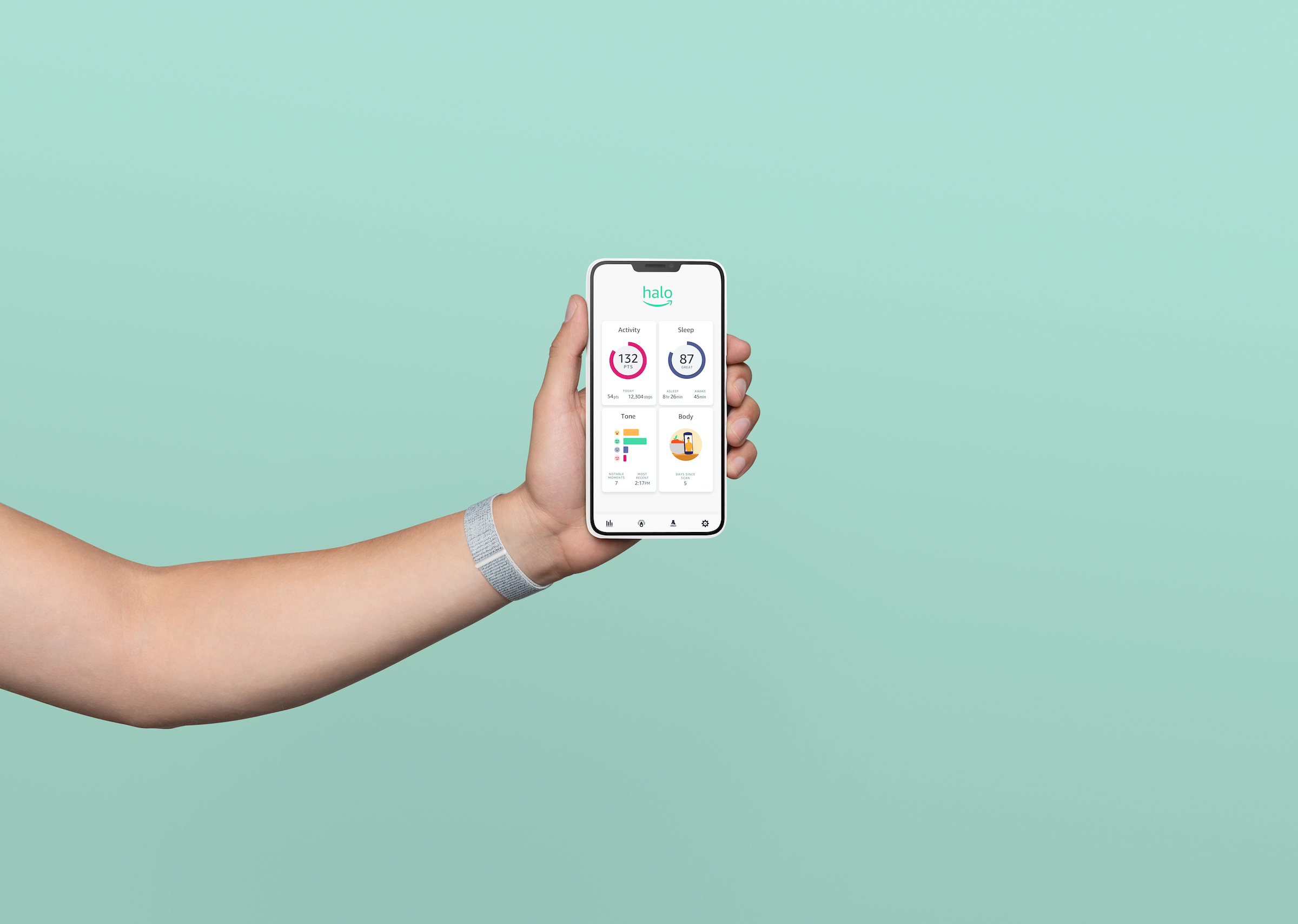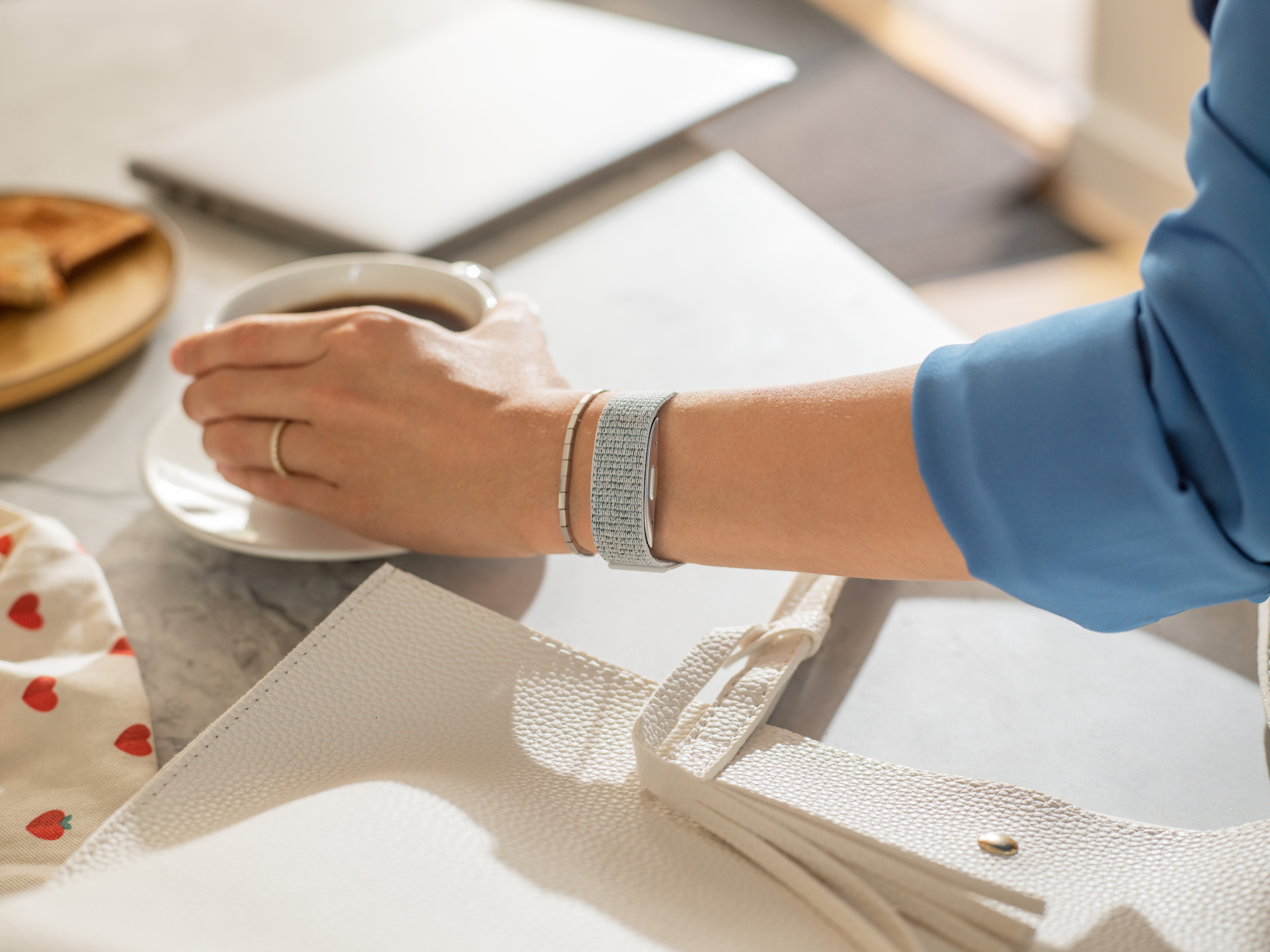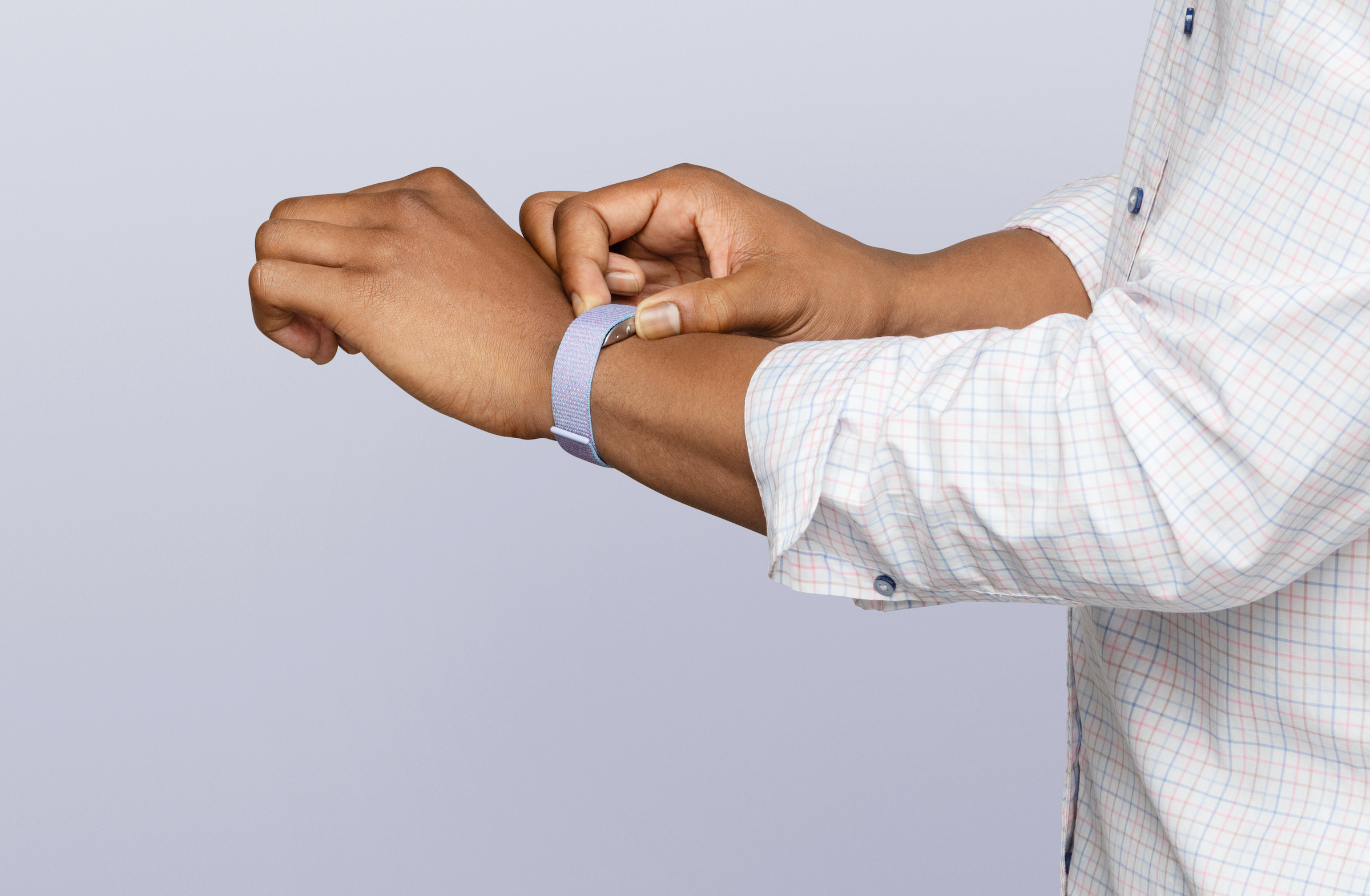Amazon has introduced an entirely new membership program called Halo today that aims to provide comprehensive personal health and wellness monitoring and advice. The Halo service, which is opening to early access by special request today, includes both the service and a new Amazon Halo Band wristworn activity tracker for $64.99 for a six-month membership. Amazon says that the standard public price of the same will be $99.99 once it’s more generally available.
Halo looks to offer more than your standard health tracking gadget/app combo, by taking a comprehensive look at various measures of health, including body fat percentage, as measured at home with just your smartphone’s own camera and the Amazon Halo app. The company says that it was able to make this possible using its own advances in computer vision and machine learning. Amazon employes deep neural network-based processing of your uploaded photos to separate your body from its surroundings, analyze so-called body fat “hot spots” where it’s easier to measure body fat percentage, and then generates a 3D model of your body. You can then use a slider to adjust your body fat percentage up or down to see what kind of impact gaining or losing body fat would actually have on your physique.

Image Credits: Amazon
Amazon claims that its technology is able to provide accuracy up to the standards of what a doctor would be able to determine in a clinical setting – and as much as twice as accurate as is currently possible using other at-home methods, including smart scales.
Meanwhile, the Amazon Halo Band is a small, sleek wristworn device that can capture other measures of health, including activity, skin temperature, sleep states (including REM, light and deep sleep). It has an accelerometer, a heart rate monitor, two microphones, and it’s water resistant. The built-in battery can last up to a fully week on a 90 minute charge, and it’s compatible with a range of different band accessories for switching style.
Another unique vector that Amazon is measuring on top of activity, sleep and body fat percentage is wha tit’s calling “Tone” – that’s why there are microphones on board the Halo Band. That monitors your voice, and applies machine learning to determine factors including “energy and positivity.” Amazon says this will allow them to provide unique insights like whether “a difficult work call leads to less positivity in communication with a customer’s family,” for instance.

Image Credits: Amazon
The blatant, obvious concern here is that Amazon Halo seeks unprecedented access to a person’s personal data in order to derive its insights. Amazon is looking to collect information about the time, lengthy and quality of your sleep; biometric data including your heart rate and body temperature; information about when you exercise and where; and even highly accurate and detailed info about your body’s physical makeup – not to mention how your voice sounds and what that might indicate about your mental state.
Amazon says in a release about Halo that both Halo and Body were built with “privacy in mind,” and that body scans are automatically deleted from any servers where they’re stored after they’re processed. They’re then stored only locally on your phone, and Amazon says this means “no one but you ever sees them” unless you opt to share them. Further, it says all health data “is encrypted in transit and in the cloud,” with customers able to delete their data at any time. As for voice and speech data, Amazon says that these are analyzed locally on the phone itself and then immediately deleted after processing, so that no one ever hears them – including them customer themselves.

Image Credits: Amazon
Even so, this is handing a lot of trust and information to Amazon, and while the raw data may be protected, the insights gathered, even if anonymized, obviously stand to offer Amazon a lot more value in terms of its ability to tune its overall product offerings and create additional opportunities for things like its bourgeoning healthcare business. That said, Amazon’s Alexa voice assistant and ecosystem hasn’t seemed to deter customers, so it’ll be interesting to see how many are open to sharing even more info with Amazon in exchange for guided health and wellness advice.
Comments
Post a Comment